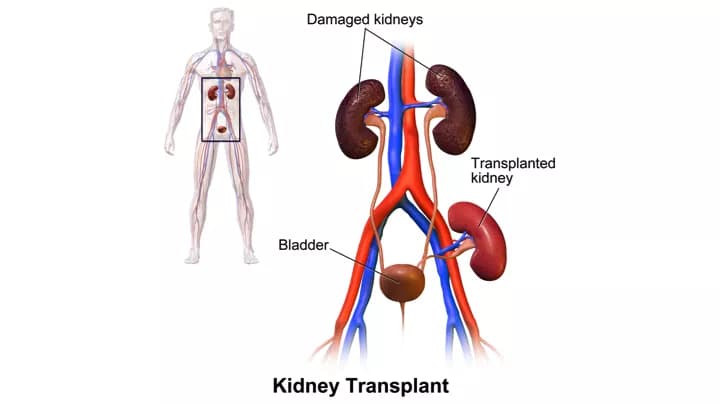
Biologists Identify Gene Involved In Kidney-Related Birth Defects
A team led by University of Iowa researchers has identified a gene linked to rare, often fatal kidney-related birth defects.
The newly discovered mutated gene is called GREB1L. It is associated with renal agenesis, a hereditary condition in which children are born with either one kidney or no kidneys at all. Children born with a single kidney, a condition called unilateral renal agenesis, generally live, but they often encounter other health problems, including hypertension and early kidney failure. Children born without kidneys do not survive.
John Manak, associate professor in biology, says the finding allows for families carrying the mutation to be told in advance whether their children are at risk of inheriting the disorder.
"Essentially, it's a way to determine early on whether the child will likely be born with the disorder or be born healthy," says Manak, corresponding author on the paper. "Imagine the relief the parents would feel in the latter case. In fact, based on our work, we already know that additional families have been identified that harbor mutations in this gene, and they can now be better informed about the disorder affecting them."
Manak, associate professor in biology, and Patrick Brophy, professor in pediatrics and a co-author on the paper, teamed up to identify the GREB1L gene. Brophy, who's long been interested in renal agenesis, collected DNA samples from an Iowa family with the condition. Manak's lab performed whole-exome sequencing, meaning the researchers searched the protein-coding sections of the family members' genomes, which comprise just 2 percent of a person's genetic blueprint. After narrowing the search to a small slice of the genome, the researchers weeded through tens of thousands of genes before finding the GREB1L mutation and determining the defect appeared in each family member with the disorder.
While that was promising, Manak's team wanted further proof, so the researchers obtained GREB1L-mutated zebrafish embryos, which are transparent and develop organs in just days. The team saw that zebrafish with the mutated gene failed to properly develop kidneys in the earliest stages.
Next, the researchers introduced the mutated gene in mice using the CRISPR-Cas9 technique, which enabled them to instruct the mice's genomes to create the mutated gene on command rather than waiting for it to be passed down through generations. Like the zebrafish, mice carrying the GREB1L mutation were born with either one functioning kidney or none at all.
"That tells us this gene is associated with this disorder, unequivocally," Manak says.
A second family, from Denmark, also was found to carry the GREB1L mutation, solidifying the gene's role in renal agenesis in humans.
Other mutated genes have been linked to renal agenesis, but what makes GREB1L particularly interesting is its hierarchal role in how genetic instructions are passed along in kidney development. Much like a quarterback calling a play for a football team, the GREB1L protein activates a cascade of signals that ultimately tell various individual genes what they need to do to create a functioning kidney. While some of these individual genes, if mutated, could cause a kidney to develop improperly, a damaged GREB1L affects the entire kidney-development process because it sends the first, all-important command.
The paper, "A gene implicated in activation of retinoic acid receptor targets is a novel renal agenesis gene in humans," was published in the journal Genetics. Read its abstract here.
Materials provided by University of Iowa. Note: Content may be edited for style and length.
Disclaimer: DoveMed is not responsible for the accuracy of the adapted version of news releases posted to DoveMed by contributing universities and institutions.
References:
Patrick D. Brophy, Maria Rasmussen, Mrutyunjaya Parida, Greg Bonde, Benjamin W. Darbro, Xiaojing Hong, Jason C. Clarke, Kevin A. Peterson, James Denegre, Michael Schneider, Caroline R. Sussman, Lone Sunde, Dorte L. Lildballe, Jens Michael Hertz, Robert A. Cornell, Stephen A. Murray, J. Robert Manak. (2017). A Gene Implicated in Activation of Retinoic Acid Receptor Targets Is a Novel Renal Agenesis Gene in Humans. Genetics. DOI: 10.1534/genetics.117.1125
Related Articles
Test Your Knowledge
Asked by users
Related Centers
Related Specialties
Related Physicians
Related Procedures
Related Resources
Join DoveHubs
and connect with fellow professionals

0 Comments
Please log in to post a comment.